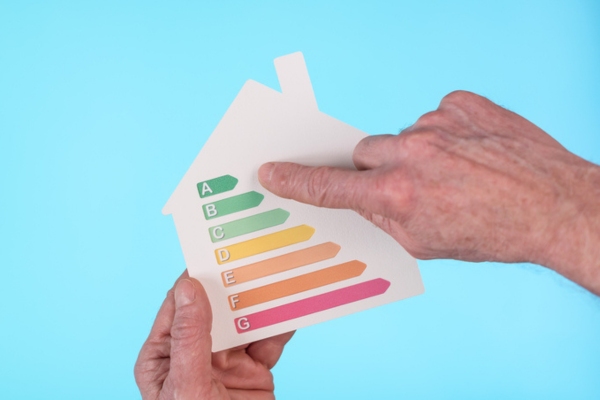AFUE vs AFUE2: How New Standards Affect Your Heating System

Efficient heating is a priority for many homeowners looking to minimize their energy consumption. At Hart Home Comfort, a trusted HVAC provider in Nassau County, Suffolk County, and Queens, New York, we specialize in installing, maintaining, and upgrading heating systems to boost energy efficiency and reduce energy costs.
This article delves into the distinctions between AFUE and AFUE2 standards, providing clear insights into their relevance in assessing the efficiency of heating systems.
Understanding the differences between AFUE vs AFUE2 is vital for homeowners who want to make informed decisions about the most efficient heating solutions for their homes.
Rely on Hart Home Comfort for Reliable Home Comfort: Whether you need efficient heating or expert HVAC services, we offer the solutions that keep your home comfortable. Contact us today to book your service!
Heating Efficiency Standards: Understanding AFUE & AFUE2
Table of Contents
- 1 Heating Efficiency Standards: Understanding AFUE & AFUE2
- 2 AFUE vs AFUE2: A Side-by-Side Comparison
- 3 Effect on Heating Efficiency Ratings
- 4 Why Heating System Efficiency Standards Are Important
- 5 Choosing an Energy-Efficient Heating System
- 6 The Future of Heating Efficiency Standards
- 7 AFUE vs AFUE2: Common Questions
- 7.1 Which Heating Systems Are Measured Using AFUE Ratings?
- 7.2 Is a Higher AFUE Rating Guaranteed to Lower Heating Costs?
- 7.3 Do All Heating Systems Have to Meet AFUE2 Standards?
- 7.4 Is It Possible to Upgrade My Current System to Comply with AFUE2 Standards?
- 7.5 Are There Financial Benefits for Selecting High-Efficiency Heating Systems?
- 8 Conclusion
- 9 Reach Out to Hart Home Comfort for Exceptional HVAC Services

AFUE and AFUE2 are essential standards used to measure the fuel efficiency of heating systems. Grasping these concepts is important for making informed choices about energy use and choosing cost-effective home heating options.
Stay Warm and Comfortable with Hart Home Comfort: Count on Hart Home Comfort for dependable heating and HVAC solutions that keep your home cozy all year. Reach out today!
What Is AFUE?
AFUE, or Annual Fuel Utilization Efficiency, measures the percentage of fuel a heating system converts into usable heat. For example, an AFUE rating of 90% means 90% of the fuel is effectively turned into heat, while the remaining 10% is lost.
This rating is an important tool for homeowners to assess and compare the efficiency of furnaces, boilers, and other heating systems.
A higher AFUE rating indicates greater efficiency, reducing fuel consumption and energy bills. Therefore, AFUE is a key factor in managing heating costs effectively.
Introducing AFUE2: The Next Generation of Home Heating Efficiency
AFUE2 is the revised version of the Annual Fuel Utilization Efficiency (AFUE) standard, developed by organizations like the Department of Energy (DOE). This update refines the method for assessing heating efficiency, offering homeowners a clearer and more precise view of their system’s performance.
Unlike the original AFUE, which mainly measures fuel-to-heat efficiency in controlled settings, AFUE2 broadens these measurements to reflect real-world conditions accurately.
The shift to AFUE2 was driven by the need to overcome the limitations of the original AFUE standard, which failed to consider everyday factors like climate changes, installation differences, and variations in system maintenance.
AFUE2 introduces extra testing parameters that account for standby energy losses and the system’s efficiency during start-up and regular operation cycles. These improvements make AFUE2 a more rigorous and comprehensive testing method, offering a clearer picture of a system’s overall efficiency. Additionally, these updates allow consumers to assess heating systems more effectively, considering performance and potential energy savings.
Discover Top-Quality Heating Services with Hart Home Comfort: Whether it’s repairs or installations, Hart Home Comfort has the knowledge and experience to keep your system running smoothly. Reach out today!
AFUE vs AFUE2: A Side-by-Side Comparison

While AFUE and AFUE2 are designed to measure heating efficiency, they differ in the parameters they use and the level of detail in their assessments.
Key Differences in Heating Efficiency Standards
- Testing Conditions for Heating Efficiency: AFUE2 considers a broader array of real-world variables, such as environmental fluctuations and system responsiveness, offering a more realistic reflection of everyday performance. Conversely, AFUE testing is conducted in more controlled and simplified environments.
- Accuracy of HVAC Efficiency Ratings: With its broader scope, AFUE2 provides a more precise and realistic assessment of a heating system’s efficiency, delivering a clearer understanding of how systems perform in typical conditions.
- Compliance Requirements: As industry regulations progress, more heating systems are required to meet AFUE2 standards, encouraging manufacturers to enhance their technology and improve overall efficiency.
Stay Cozy and Comfortable with Hart Home Comfort: Trust Hart Home Comfort to care for your heating and HVAC needs for reliable warmth. Contact us today!
Effect on Heating Efficiency Ratings
Heating systems tested under AFUE2 may receive lower efficiency scores than AFUE assessments, as AFUE2 applies stricter and more realistic testing conditions. Despite the difference in ratings, this leads to a more accurate assessment of energy savings, helping consumers better understand the long-term advantages and cost-effectiveness of their heating systems.
Why Heating System Efficiency Standards Are Important

Grasping and utilizing AFUE and AFUE2 standards is essential for homeowners seeking energy savings and ensuring compliance with environmental and regulatory guidelines.
How HVAC Efficiency Affects Homeowners
AFUE and AFUE2 standards help homeowners make informed decisions when purchasing or upgrading their heating systems. By using these ratings as benchmarks, homeowners can better estimate the costs and energy savings of various heating options, ensuring they choose the most efficient and cost-effective solutions for their home.
Rely on Hart Home Comfort for Exceptional HVAC Services: From maintenance and repairs to installations, Hart Home Comfort provides the quality and reliability you need. Reach out to us today!
Heating Efficiency & Its Environmental Impact
Stricter efficiency standards, such as AFUE2, drive the use of advanced heating systems that operate more efficiently and generate fewer emissions, helping to reduce household carbon footprints. This transition is crucial for supporting sustainable energy practices and minimizing the environmental effects of home heating.
Standards & Regulatory Compliance
For manufacturers, meeting these evolving standards is essential to comply with national and international energy regulations. These standards foster innovation in heating technology, ensuring new systems adhere to strict efficiency and environmental criteria.
Choosing an Energy-Efficient Heating System

When choosing a heating system, it’s essential to understand AFUE and AFUE2 ratings to ensure they align with your climate and energy requirements. These ratings help assess the balance between initial investment and long-term cost savings.
Generally, a higher AFUE or AFUE2 rating suggests a more efficient system, leading to lower energy costs over time, although it may involve a higher upfront investment.
Evaluating these factors in relation to your home and usage habits ensures you select a heating system that provides optimal performance and value.
Partnering with experienced HVAC professionals like Hart Home Comfort can make choosing and installing the right heating system much easier. We can guide you through the complexities of AFUE and AFUE2 ratings, helping you select a system tailored to your specific needs.
Additionally, proper installation by skilled professionals is essential to make sure your system operates at its highest efficiency and performance.
Choosing a high-efficiency heating system reduces energy costs, improves indoor comfort, and contributes to environmental sustainability by decreasing your home’s carbon footprint.
Select Hart Home Comfort for Dependable Heating Solutions: Keep your home cozy and energy-efficient with Hart Home Comfort’s professional heating and HVAC services. Contact us today!
The Future of Heating Efficiency Standards

As heating efficiency standards evolve, homeowners can anticipate future updates and improvements in efficiency testing that will result in even more stringent requirements. These advancements are expected to spur significant technological innovations in heating systems, ensuring that newer models become more efficient and environmentally sustainable.
Furthermore, as these standards become more stringent, homeowners may gain access to financial incentives like energy rebates and special programs to help offset the cost of upgrading to high-efficiency systems.
These advancements promise improved performance and a smaller environmental footprint, and offer the potential for long-term cost savings.
Enhance Your Comfort with Hart Home Comfort’s Heating Solutions: Experience efficient, top-quality heating with Hart Home Comfort’s expert HVAC services. Contact us today!
AFUE vs AFUE2: Common Questions

Which Heating Systems Are Measured Using AFUE Ratings?
AFUE ratings are primarily used for gas and oil-fired heating systems, including furnaces, boilers, and water heaters. These ratings offer a consistent way to evaluate and compare the energy efficiency of different systems, helping homeowners make better choices when purchasing or upgrading their heating equipment.
Is a Higher AFUE Rating Guaranteed to Lower Heating Costs?
Although a higher AFUE rating typically indicates better energy efficiency, actual heating costs are influenced by several factors. These include local fuel prices, the size and insulation of your home, your climate, and the maintenance of your system. Consistent maintenance and proper insulation are essential to achieving the greatest savings.
Do All Heating Systems Have to Meet AFUE2 Standards?
AFUE2 standards are required for new heating systems manufactured after certain regulatory updates. Existing systems already in use are not obligated to meet these new standards. When purchasing a new system, verify that it complies with AFUE2 regulations to ensure better efficiency and adherence to current standards.
Maintain Your HVAC System’s Peak Performance with Hart Home Comfort: Rely on Hart Home Comfort for expert maintenance and repair services that help prolong your system’s lifespan. Contact us today to book your service!
Is It Possible to Upgrade My Current System to Comply with AFUE2 Standards?
Current heating systems cannot be modified to meet AFUE2 standards, as these standards require specific testing procedures and design changes. However, upgrading to a new, high-efficiency system that meets AFUE2 standards can lead to significant energy savings, reduced heating costs, and improved overall performance.
Are There Financial Benefits for Selecting High-Efficiency Heating Systems?
Yes, numerous states, local governments, and utility companies provide rebates, tax credits, or financing options for those upgrading to high-efficiency heating systems. Systems that comply with AFUE2 or other updated standards are typically eligible for these incentives. Additionally, federal programs may offer further savings for environmentally-friendly or energy-efficient upgrades. Be sure to consult your HVAC provider or local energy office to discover the programs available in your area.
Conclusion
Grasping the significance of AFUE and AFUE2 ratings is crucial for choosing heating systems that meet your energy requirements and budget. These standards provide a clear way to assess efficiency, helping you make well-informed decisions about your home’s heating needs.
Hart Home Comfort is ready to offer expert guidance throughout the selection and installation process. With our skilled support, you can enhance your home’s heating efficiency, comfort, and affordability, making informed decisions while navigating the intricacies of today’s heating technologies.
Efficient Heating Begins with Hart Home Comfort: Whether it’s system optimization or new installations, Hart Home Comfort guarantees your home remains warm and comfortable. Get in touch with us today!
Reach Out to Hart Home Comfort for Exceptional HVAC Services
Hart Home Comfort provides top-quality heating and cooling services in Nassau County, Suffolk County, and Queens, New York. Our team of certified technicians offers expert HVAC tune-ups, repairs, installations, replacements, and much more! Our technicians have extensive knowledge and experience to ensure your HVAC system operates at its best.
We offer the most competitive heating and cooling service prices in the area. Our maintenance services enhance your comfort and energy efficiency, helping to reduce your home’s heating and cooling costs. If you need HVAC repairs or a replacement system, we’ll help you choose the perfect solution for your home, all within your budget.
A satisfaction guarantee backs all our services. Contact Hart Home Comfort today to book your service appointment. We also offer in-home consultations. Call now!
For any questions about what Hart Home Comfort can do for you, give us a call today. Click here to contact us now or call us at (631) 667-3200 to find out more! Click the link to view our service area.

Related Articles: